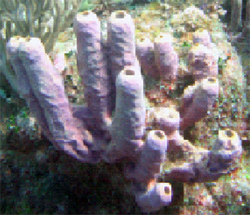A prostate cancer drug developed by researchers at UBC and the BC Cancer Agency is entering human clinical trials — the first drug developed by the agency to be systematically tested on humans.
The drug, called EPI-506, was specifically designed by Marianne Sadar, a Professor in the Department of Pathology and Laboratory Medicine and Distinguished Scientist at the BCCA, and by Raymond Andersen, a Professor in the Department of Chemistry, to target and shut down metastatic castrate resistant prostate cancer (m-CRPC) when other treatments have failed.
Over a decade in the making, EPI-506 is a synthetic variant of a pollutant found by Dr. Andersen’s team in a marine sponge off the coast of Papua New Guinea.
EPI-506 is the first drug to target the “back end” of the androgen receptor protein, called the N-terminal domain. The androgen receptor drives most prostate cancer cells and makes them sensitive to androgen hormones, such as testosterone.
A Phase I multi-center clinical trial, sponsored by ESSA Pharma Inc., opens today at the BCCA and other sites in the U.S. to determine the drug’s safety, tolerability and anti-tumour activity. Kim Chi, an Associate Professor in the Division of Medical Oncology, will run the Canadian trial.
The second phase of the trial, to determine its ability to control tumour growth, is expected to be complete by the end of 2017.
Over 3,700 men in British Columbia will be diagnosed with prostate cancer this year. Metastatic castrate resistant prostate cancer (m-CRPC) is the lethal form of the disease and is resistant to most treatments.
Dr. Sadar’s work was supported by $2.6 million from the BC Cancer Foundation, as well as the U.S. National Cancer Institute, the U.S. Department of Defense Prostate Cancer Research Program and the Canadian Institutes of Health Research. Dr. Andersen received grants from the Canadian Cancer Society.
